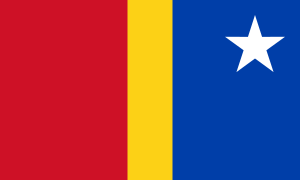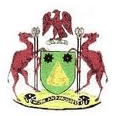Kano State facts for kids
Kano State is one of the 36 states that make up Nigeria, a large country in West Africa. Its capital city is also called Kano. This state is a very important place in Nigeria, known for its rich history, busy markets, and vibrant culture.
Kano State was officially created on May 27, 1967. It was formed from a part of what was then known as the Northern Region of Nigeria. The state shares its borders with several other Nigerian states. To the northwest, it borders Katsina State. To the northeast, you'll find Jigawa State. On its southwest side, it shares a border with Kaduna State, and to the southeast, it borders Bauchi State.
Contents
Discovering Kano State
Kano State is located in the northwestern part of Nigeria. It is mostly flat land, making it good for farming. The climate here is tropical, which means it's generally warm all year round. There are two main seasons: a rainy season and a dry season. During the dry season, a cool, dusty wind called the Harmattan blows from the Sahara Desert.
A Glimpse into History
Kano has a very long and interesting history, stretching back over a thousand years. The city of Kano was once a major trading hub in the Trans-Saharan trade routes. This means it was a busy stop for traders traveling across the vast Sahara Desert, exchanging goods like gold, salt, and kola nuts. This trade made Kano a very wealthy and powerful kingdom. Over time, it became a center for Islamic learning and culture in West Africa.
The Ancient City of Kano
The ancient city of Kano is famous for its old city walls, which were built to protect the city. Although many parts of the walls are now gone, some sections still stand, reminding people of its past. Inside these walls, you can find historical places like the Emir's Palace and the Great Mosque. These sites show the long history and traditions of the people of Kano.
How Kano State is Governed
Like all states in Nigeria, Kano State has its own government. The head of the state government is the Governor, who is elected by the people. The Governor works with a team of commissioners and a State House of Assembly to make laws and manage the state's affairs. Their job is to ensure that the state runs smoothly and that the people have access to important services like education, healthcare, and good roads.
Life and Culture in Kano
The people of Kano State are mainly from the Hausa and Fulani ethnic groups. They are known for their rich culture, which includes traditional music, dance, and crafts. The state is famous for its vibrant markets, especially the Kurmi Market in Kano city. This market has been around for centuries and is a bustling place where you can find everything from textiles and spices to local crafts.
Traditional Crafts
Kano is well-known for its traditional crafts. These include leatherwork, pottery, weaving, and dyeing. The famous Kofar Mata Dyeing Pits are an ancient site where fabrics have been dyed using traditional methods for hundreds of years. Visitors can see how beautiful patterns are created on cloth using natural dyes.
What Kano State Produces
Agriculture is a very important part of Kano State's economy. Farmers in the state grow many different crops. Some of the main crops include groundnuts (peanuts), cotton, millet, and sorghum. Kano is especially famous for its groundnut pyramids, which were once huge stacks of groundnut sacks, showing how much was produced. While these pyramids are not as common today, groundnuts remain a key product. The state also has some industries, including textile factories and food processing plants.
Images for kids
See also
 In Spanish: Estado de Kano para niños
In Spanish: Estado de Kano para niños
 | Anna J. Cooper |
 | Mary McLeod Bethune |
 | Lillie Mae Bradford |




